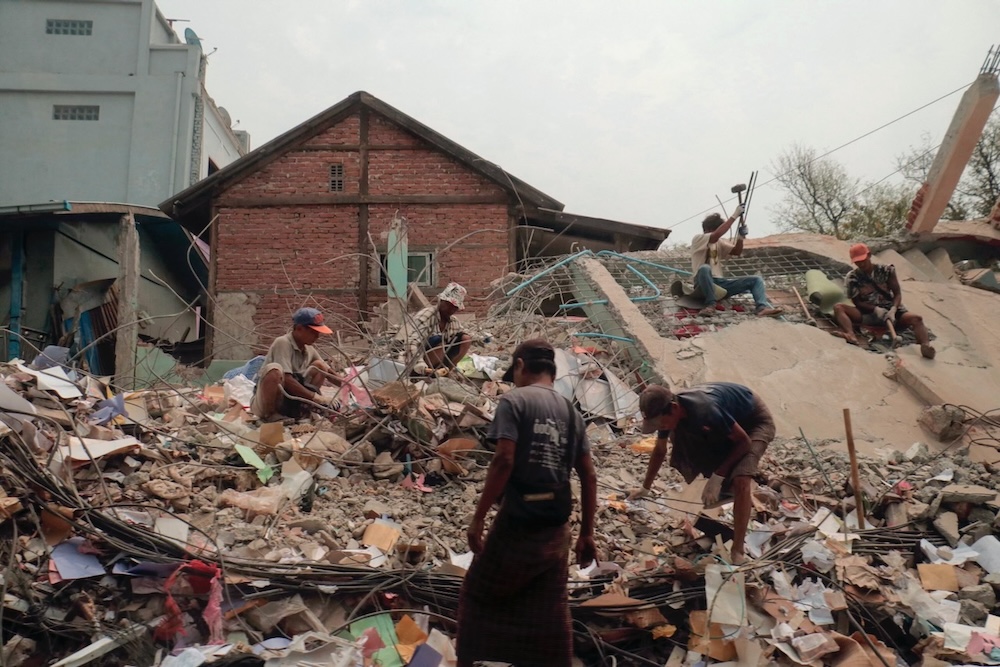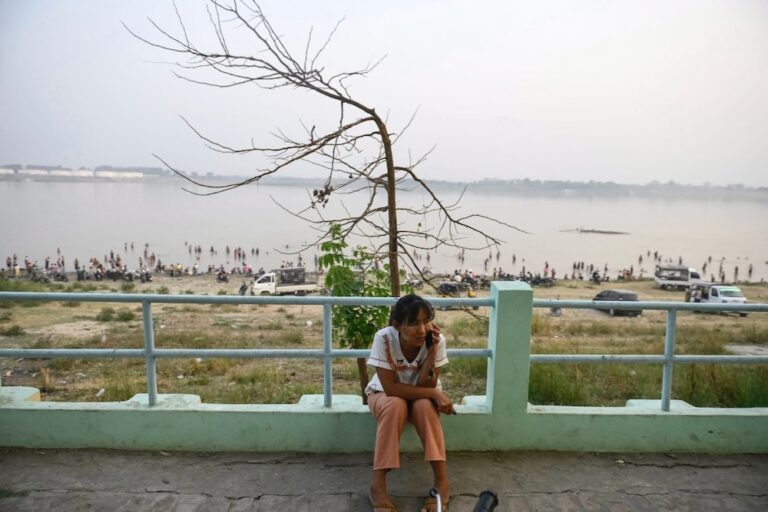A report accused the junta of blocking humanitarian aid and deploying "an arsenal of lies to shift blame and sow confusion".
This statement was originally published on eng.mizzima.com on 4 April 2025.
In Myanmar, the truth is often one of the first casualties during armed conflict and natural disasters.
The report Aid Under Attack, released on 2 April by the Ministry of Foreign Affairs of the National Unity Government (NUG), paints a chilling portrait of Myanmar’s military junta exploiting both tragedy and truth. As natural disasters strike – most recently the devastating 28 March earthquake – the military junta has not only obstructed humanitarian aid but has deployed an arsenal of lies to shift blame and sow confusion.
“Disinformation has become a weapon as potent as bullets,” the report notes.
When an ASEAN-led humanitarian convoy came under attack in Southern Shan State last year, SAC immediately blamed opposition forces. Yet multiple eyewitnesses and civil society reports indicated otherwise, the ambush was most likely perpetrated by the junta’s own troops. Similarly, the military’s narrative around Cyclone Mocha included accusations of looting by resistance forces, claims quickly discredited by local aid workers.
In the immediate aftermath of Cyclone Mocha and again following the March 2025 earthquake, the junta resumed military operations in disaster-stricken areas. Civilian populations, already reeling from natural calamities, found themselves bombed, displaced, and starved. In Mandalay and Sagaing Regions and southern Shan State, airstrikes continued as aid convoys stalled – an unconscionable violation of humanitarian norms.
Aid workers, both foreign and local, are caught in the crossfire. Some face harassment, others have been detained. One medic from the Civil Disobedience Movement (CDM) recounted treating patients in a bombed-out monastery: “We don’t have enough bandages, but we can’t wait for permission.”
The report’s conclusion is stark: Myanmar’s humanitarian crisis is not just one of disaster response, but of systematic abuse. It demands a global reckoning. Current aid models, reliant on approval from an uncaring military junta, risk empowering the very regime responsible for the suffering.
With world attention fixed on Myanmar once again, this report leaves little room for ambiguity: the cost of inaction is measured in lives. The time for diplomacy has passed. This is the time for principled, independent humanitarian action.



